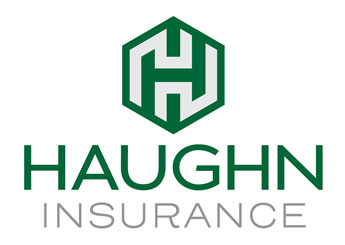
Small businesses have a great opportunity in the current technology environment to reach new, larger markets. The internet provides the opportunity for remote work and more efficient operations. However, the use of these computer-based tools also opens companies up to cyber crime. Theft of physical property has been surpassed in the business world by theft of digital information. An important part of every small business’s security plan should include cybersecurity liability insurance and the following steps to safeguard digital assets.
Provide Training
Train employees on simple cybersecurity tips and practices and ensure ongoing compliance. These should include:
- Strong passwords that change frequently
- Multi-factor authentication
- Internet use guidelines
- Rules for handling and protecting sensitive data
Utilize Firewalls
Firewalls are sets of programs that keep outside entities from gaining access to information on private networks. Install firewall software or ensure the existing firewall on your operating system is enabled. For employees working remotely, ensure their offsite systems are firewall-protected as well.
Backup Data
While cyber liability insurance can help when a small business takes a hit due to cyber crime, it’s still good practice to backup all computer data regularly, paying particular care to protect critical data, including the following:
- accounts payable files
- accounts receivable files
- databases
- electronic spreadsheets
- financial files
- human resources files
- word processing documents
Control Access
Laptops are easy targets for theft or loss, so these should be locked up when not in use. Restrict access to stationary company computers by unauthorized people. Ensure each employee has a separate user account with strong passwords. Avoid providing administrative privileges to unnecessary employees; only IT staff and key personnel should have that access. Each employee should only have access to the data systems necessary for their specific work tasks. Do not allow any single employee to have access to the entire data system. Prevent employees from downloading software without administrative authorization.
Create Mobile Device Plans
Mobile devices prevent a number of challenges to the cybersecurity for small businesses, particularly when they are capable of accessing the company’s network or if they hold sensitive data. For employees who utilize mobile devices for their job, require password protection, data encryption, and the use of security apps to keep cyber criminals from accessing sensitive information while the device is linked to a public network. Reporting procedures should be in place for equipment that has been lost or stolen.
Secure Wi-Fi Networks
Wi-Fi networks in the workplace should be encrypted, secured, and well-hidden. To hide the Wi-Fi network, the wireless router or access point should be set up without broadcasting the Service Set Identifier (SSID), which is the name of the network. Access to the router should also be password-protected.
Implementing and maintaining a strong cybersecurity plan is critical for small businesses to keep their sensitive data out of the hands of cyber criminals. Cyber liability insurance, the smart use of technology, a strong set of rules, and ongoing training will keep your business safe.
About Haughn & Associates
Founded by Michael Haughn in 1986, Haughn & Associates is a full-service, family-owned, independent insurance agency based out of Dublin, Ohio. H&A strives to provide the best possible price and unique insurance solutions across a myriad of industries, including construction, IT, Habitation & Commercial Property, Agriculture, and Engineering. Devoted to providing the best of business insurance, life and disability insurance, personal insurance, employee benefits, and bonds, H&A is proof that success lies in long-standing client relations and satisfaction. To learn more about how H&A can be of service to you, contact us at (877) 802-2278.

